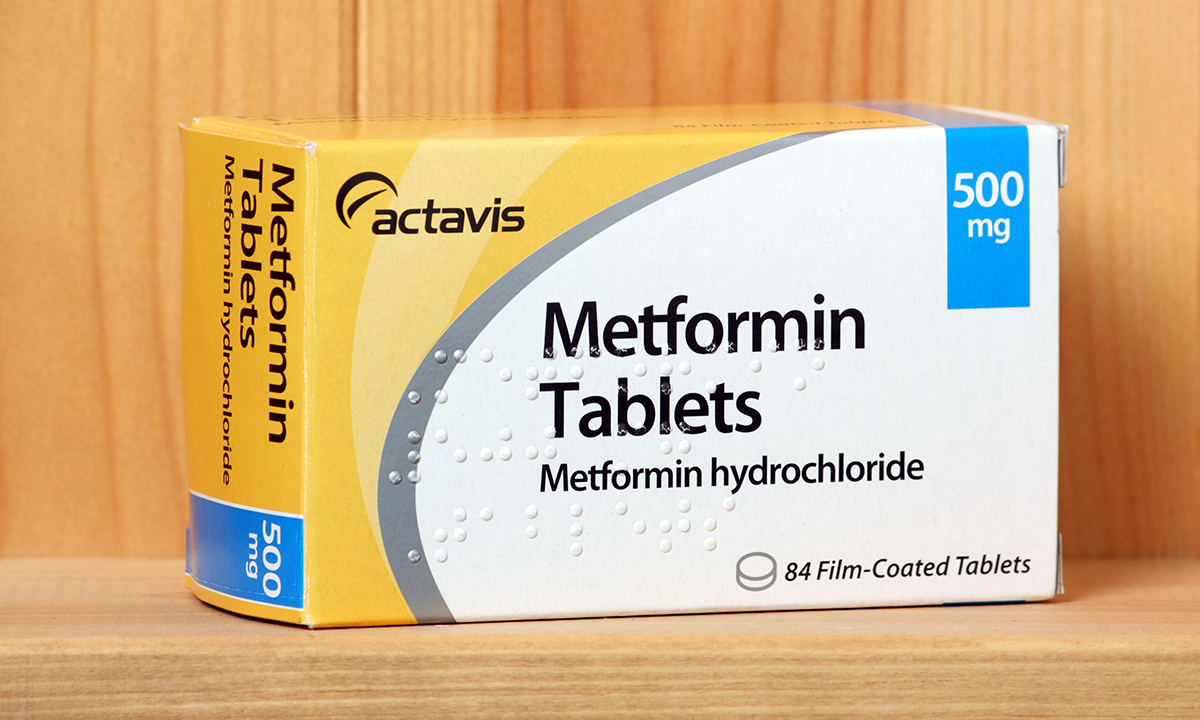THE diabetes drug metformin appears to have “a direct anti-cancer effect” and may be a useful adjuvant therapy for some cancers, new research suggests.
Researchers from University College London identified 27 studies comparing cancer outcomes in metformin users and non-users, and extracted data on patients with early-stage disease. The studies comprised 24 178 participants in total, with all being retrospective cohort studies except for one prospective cohort study.
Conducting meta-analyses by cancer type, they found that metformin had significant benefits in patients with early-stage colorectal and prostate cancer.
In colorectal cancer, metformin use was linked with significant improvements in recurrence-free survival (hazard ratio [HR], 0.63; CI, 0.47–0.85), overall survival (HR, 0.69; CI, 0.58–0.83) and cancer-specific survival (HR, 0.58; CI, 0.39–0.86).
In prostate cancer, metformin use demonstrated a borderline significant improvement in recurrence-free survival (HR, 0.83; CI, 0.69–1.00) and significant improvements in overall survival (HR, 0.82; CI, 0.73–0.93) and cancer-specific survival (HR, 0.58; CI, 0.37–0.93), with data suggesting that prostate cancer patients treated with radical radiotherapy may benefit more from metformin (recurrence-free survival HR, 0.45; CI, 0.29–0.70).
Writing in the Annals of Oncology, the authors concluded that “metformin could be a useful adjuvant agent, particularly in colorectal and prostate cancer” and said that randomised, controlled trials should investigate efficacy, dose and duration.
They stressed the drug’s safety and low cost, noting it had been “in use for over half a century” and was regularly administered alongside cancer treatments “without the emergence of any important interactions”.
“Metformin may improve OS [overall survival] by reducing the number of cardiovascular deaths associated with metabolic syndrome; however, the improvements in RFS [recurrence-free survival] and CSS [cancer-specific survival] identified suggest a direct anti-cancer effect.”
Professor Lisa Horvath, director of medical oncology and director of research at Sydney’s Chris O’Brien Lifehouse, said there was growing expert consensus that metformin – and also other agents such as aspirin and statins – may have a role in reducing cancer mortality.
“Currently, the evidence is still circumstantial, and so we need randomised controlled trials to be sure we are not just witnessing epiphenomena,” she said. “However, most of us are convinced that we need to spend more research effort looking at patient-related factors such as these that interact with the cancer itself, rather than just dissecting tumours.”
Exercise was another patient-related factor currently being studied as a possible adjuvant treatment, she added.
In the latest meta-analyses, random-effects modelling attenuated the impact of metformin – recurrence-free survival was no longer significant in colorectal cancer and none of the results remained significant in prostate cancer.
However, for both cancer types, the benefits of metformin appeared to increase over time, with stronger results in sensitivity analyses restricted to studies with greater than 3-year follow-ups.
In breast and urothelial cancers, no significant benefits were identified and there were insufficient studies to conduct meta-analyses.
The authors said that both patient characteristics and tumour biology might explain why metformin was shown to have an adjuvant effect for some cancers and not others.
Metformin was known to impact AMP-activated protein kinase [AMPK] signalling, they noted, which was implicated in the metabolic syndrome.
The AMPK pathway was also known to play a role in regulating cellar responses to radiotherapy. The authors said that this might explain why patients who received radical radiotherapy experienced significant benefit from metformin (HR, 0.45; CI, 29–0.70), whereas no significant benefit was seen for patients who underwent radical prostatectomy.
Professor Susan Davis, an endocrinologist at Victoria’s Monash University and chief investigator of a study of metformin to prevent endometrial cancer, said that the latest findings were good news for patients already taking metformin.
“Patients are always concerned about side effects of medications and dangers of being on them too long,” she said. “In this instance metformin appears to have no adverse long term effects and may be beneficial – this may enhance compliance.
“Metformin action appears to involve inhibition of metabolic pathways associated with cell proliferation and inflammation – pathways involved in carcinogenesis,” she said.
“Metformin also lowers insulin levels, which is favourable as insulin is a growth factor in the context of carcinogenesis, and metformin can facilitate weight loss.”
Dr Fiona Brownfoot, a clinician researcher from Melbourne’s Mercy Hospital for Women, who has investigated using metformin to prevent pre-eclampsia, told MJA InSight that it was important not to give patients false hope about metformin.
“More clinical trials are definitely needed before we start prescribing metformin for off-label use,” she said.
“While it is a safe medicine, we need to ensure it is effective at treating these diseases.”
Latest news from doctorportal:
- Exercise helps with early dementia: study
- Government lifts asylum gag on doctors, nurses
- New guidelines for asthma treatment
- Health costs rise as rebate freeze bites

 more_vert
more_vert